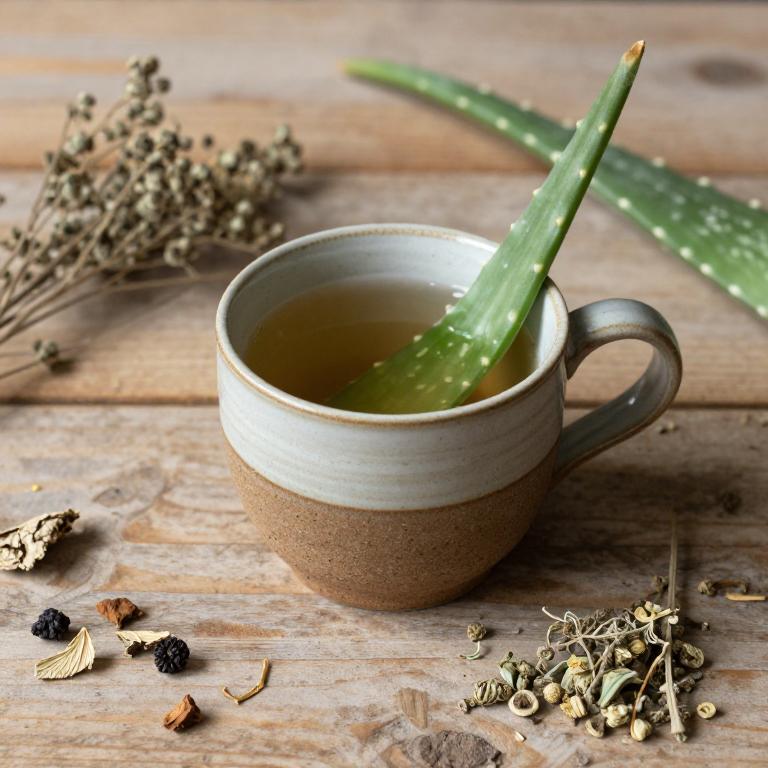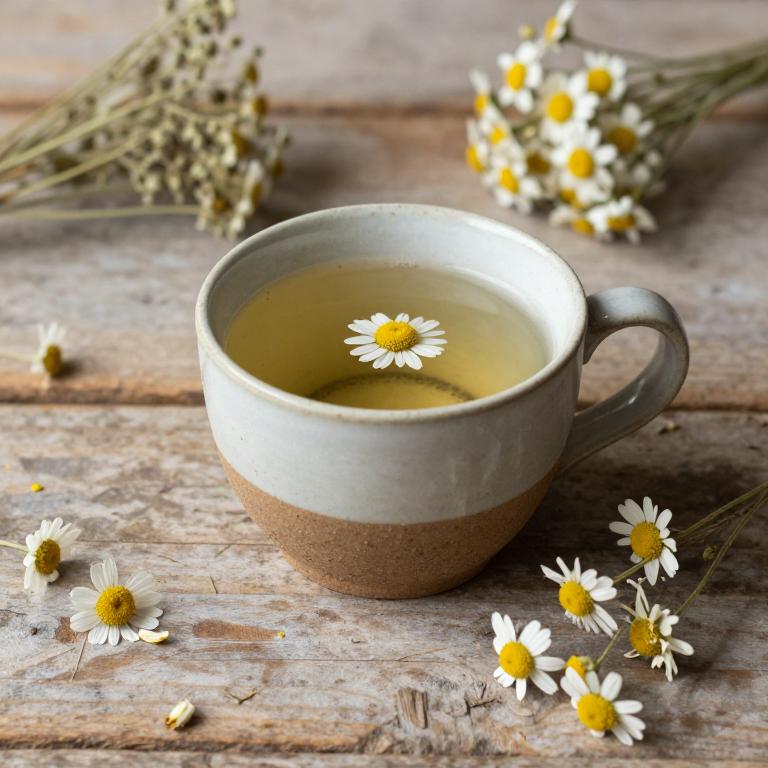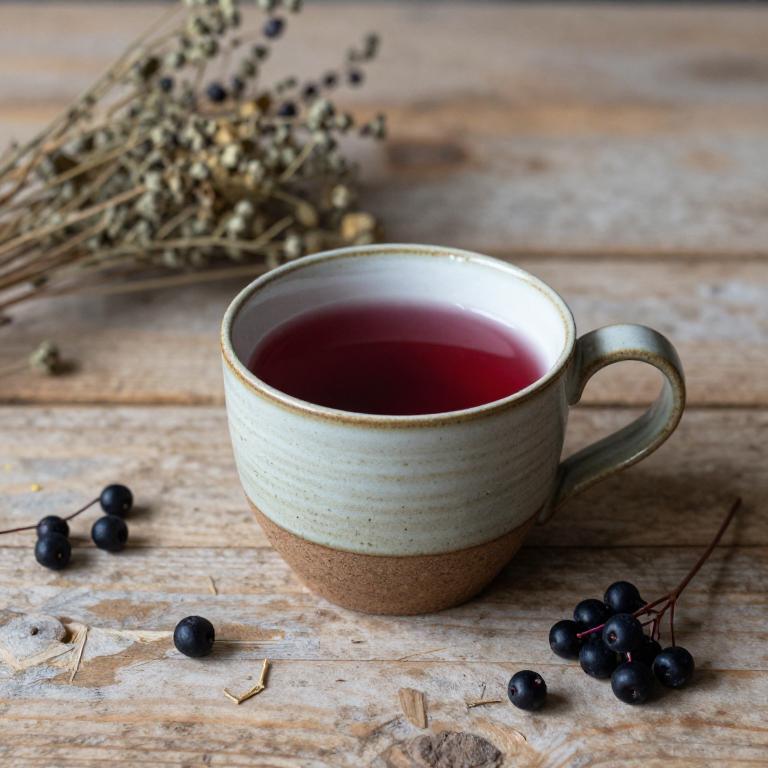10 Best Herbal Teas For Dry Hair

Herbal teas can be a beneficial addition to a hair care routine for those with dry hair, as they are naturally rich in antioxidants and nutrients that help nourish and strengthen hair strands.
Popular choices include chamomile, nettle, and rosemary teas, which are known for their moisturizing and stimulating properties. These teas can be used as a rinse after shampooing to add moisture and improve scalp health, promoting healthier hair growth. Regular use of herbal teas can help reduce frizz and enhance the overall shine and softness of dry hair.
Incorporating herbal teas into your hair care regimen can be a simple, natural way to address dryness and improve the condition of your hair over time.
Table of Contents
- 1. Camellia (Camellia sinensis)
- 2. Rosemary (Rosmarinus officinalis)
- 3. Field horsetail (Equisetum arvense)
- 4. Stinging nettle (Urtica dioica)
- 5. Aloe vera (Aloe barbadensis)
- 6. English lavender (Lavandula angustifolia)
- 7. St. john's wort (Hypericum perforatum)
- 8. German chamomile (Chamomilla recutita)
- 9. Thistle (Silybum marianum)
- 10. Black elderberry (Sambucus nigra)
1. Camellia (Camellia sinensis)

Camellia sinensis, the plant from which green tea is derived, is also the source of several herbal teas that are beneficial for dry hair.
These teas are rich in antioxidants, vitamins, and minerals that can help strengthen hair follicles and improve scalp health. Regular consumption of Camellia sinensis herbal teas may promote natural oil production, reducing dryness and brittleness in hair. The caffeine in these teas can also stimulate blood circulation to the scalp, enhancing hair growth and vitality.
Overall, incorporating Camellia sinensis herbal teas into a hair care routine can offer a natural and nourishing approach to addressing dry hair concerns.
2. Rosemary (Rosmarinus officinalis)

Rosmarinus officinalis, commonly known as rosemary, is a versatile herb that has been traditionally used to promote hair health, particularly for those with dry hair.
Rosemary herbal tea is rich in antioxidants and essential oils that help stimulate scalp circulation and enhance hair growth. When used as a hair rinse or consumed internally, it can help nourish the scalp and improve the overall condition of dry, brittle hair. The anti-inflammatory properties of rosemary also help reduce dandruff and soothe an irritated scalp, making it a valuable addition to a hair care routine.
Regular use of rosemary herbal tea can lead to stronger, healthier hair by providing essential nutrients and moisture to the strands.
3. Field horsetail (Equisetum arvense)

Equisetum arvense, commonly known as horsetail, is a nutrient-rich herb that has been traditionally used to promote hair health.
When brewed into a herbal tea, it provides a high concentration of silica, which is essential for strengthening hair strands and improving their overall structure. This tea is particularly beneficial for individuals with dry, brittle hair, as it helps to restore moisture and enhance elasticity. The mild, slightly grassy flavor of horsetail tea makes it an easy addition to a daily wellness routine.
Regular consumption of equisetum arvense tea may contribute to healthier, more vibrant hair over time.
4. Stinging nettle (Urtica dioica)

Urtica dioica, commonly known as stinging nettle, is a versatile herb that has been used for centuries in traditional medicine for its numerous health benefits.
When brewed into a herbal tea, stinging nettle can promote healthy hair growth and improve the condition of dry hair by providing essential nutrients like iron, silica, and vitamins A and C. The tea helps to strengthen hair follicles, reduce breakage, and add moisture to the hair shaft, making it particularly beneficial for those with dry or brittle hair. Regular consumption of stinging nettle tea can also support scalp health and reduce dandruff, contributing to overall hair vitality.
However, it is important to consult with a healthcare professional before incorporating this herb into your routine, especially if you have any underlying health conditions or are taking medications.
5. Aloe vera (Aloe barbadensis)

Aloe barbadensis, commonly known as aloe vera, is often used in herbal teas to promote healthy hair growth and improve scalp condition.
These teas are believed to nourish the scalp, reduce dandruff, and enhance the overall texture of dry hair by providing essential nutrients and moisture. The soothing properties of aloe vera help to calm irritation and inflammation, making it beneficial for those with sensitive scalps. Regular consumption of aloe barbadensis herbal tea may also support the absorption of other hair-friendly nutrients, contributing to stronger and more manageable hair.
However, it is important to consult a healthcare professional before incorporating aloe tea into your routine, especially if you have existing health conditions or are taking medications.
6. English lavender (Lavandula angustifolia)

Lavandula angustifolia, commonly known as English lavender, is a popular herb used in herbal teas for its soothing and nourishing properties.
When brewed into tea, lavender is known to promote scalp health and may help reduce dryness and dandruff. Its calming aroma can also help alleviate stress, which is a common contributor to hair dryness and brittleness. The antioxidants and essential oils in lavender tea may strengthen hair follicles and improve overall hair texture.
Regular consumption of lavender herbal tea can be a natural and gentle way to support healthy, hydrated hair from within.
7. St. john's wort (Hypericum perforatum)

Hypericum perforatum, commonly known as St. John's Wort, is a herbal plant that has been traditionally used for its calming and healing properties.
When brewed into a tea, it can be beneficial for individuals with dry hair by nourishing the scalp and improving overall hair health. The tea is rich in antioxidants and anti-inflammatory compounds that help reduce scalp irritation and promote a healthier environment for hair growth. Regular consumption of St. John's Wort tea may help alleviate dryness and restore moisture to the hair shaft.
However, it is important to consult with a healthcare provider before using this herb, as it can interact with certain medications.
8. German chamomile (Chamomilla recutita)

Chamomilla recutita, commonly known as German chamomile, is a popular herb used in herbal teas for its soothing and nourishing properties.
When brewed into a tea, it can help moisturize and strengthen dry hair by providing essential nutrients and antioxidants. The anti-inflammatory compounds in chamomile may help reduce scalp irritation and promote a healthy environment for hair growth. Regular use of chamomile tea as a rinse or rinse can improve the overall condition of dry, brittle hair, making it softer and more manageable.
Additionally, its calming aroma can provide a relaxing experience, enhancing the overall hair care routine.
9. Thistle (Silybum marianum)

Silybum marianum, also known as milk thistle, is a herbal remedy often used in teas to promote hair health, particularly for those with dry hair.
This herb is rich in antioxidants and essential nutrients that can help nourish and strengthen hair follicles. When brewed into a tea, silybum marianum may help improve scalp circulation and reduce dryness, leading to healthier hair growth. Its anti-inflammatory properties can also soothe an irritated scalp, making it beneficial for individuals experiencing dryness or dandruff.
While more research is needed, many users report improved hair texture and reduced frizz after incorporating this herbal tea into their routine.
10. Black elderberry (Sambucus nigra)

Sambucus nigra, commonly known as elderberry, is a traditional herbal remedy that has been used for centuries to support overall health, including hair wellness.
When brewed into a herbal tea, sambucus nigra is believed to promote scalp health and may help strengthen hair follicles, making it beneficial for those with dry, brittle hair. The tea contains antioxidants and anti-inflammatory properties that can nourish the scalp and improve circulation, which is essential for healthy hair growth. Regular consumption of sambucus nigra tea may help reduce dandruff and moisturize the scalp, leading to softer, more manageable hair.
However, it is important to consult a healthcare professional before incorporating this herb into your routine, especially if you have existing medical conditions or are taking other medications.